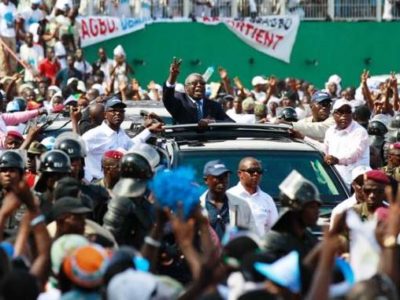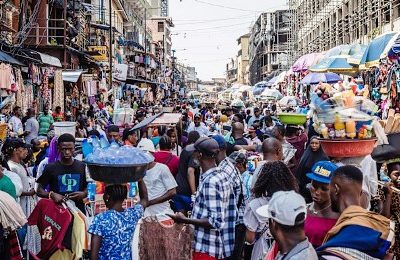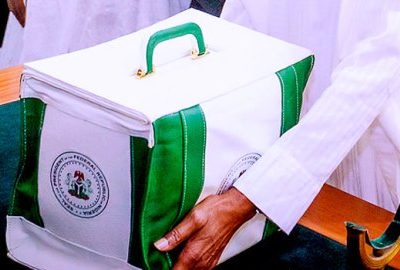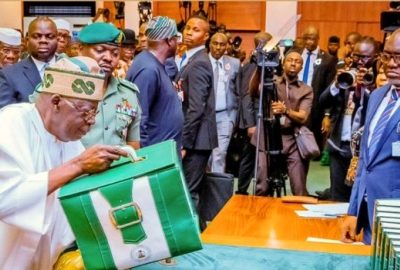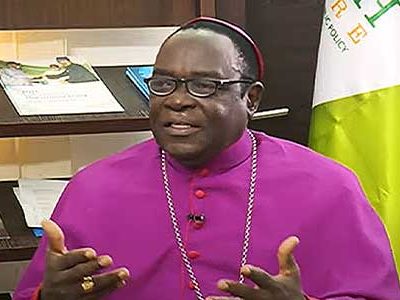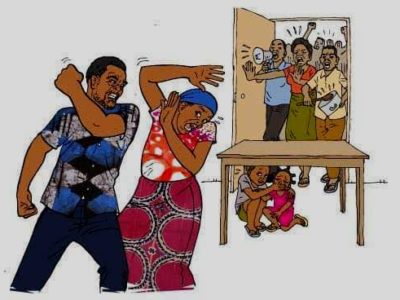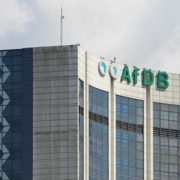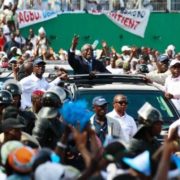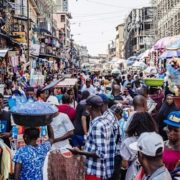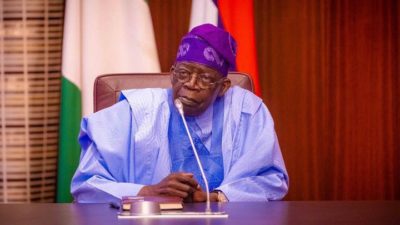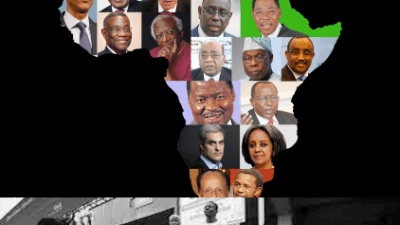– A perspective from China
Prof Liu Hongwu offers a Chinese perspective on how Africa can solve its lack of governance issue.

Inside the African Union, Addis Ababa where much of issues that affect the continent’s governance and development are discussed
For a long time, capacity deficiencies and the low level of governance performance among African countries lead to turmoil of “having tribe societies without a central government”. This is an important factor that caused slow development in Africa. Thus, we must rethink the development and governance issues of Africa, to seek Africanised solutions for African issues based on the characteristics of Africa. Among these, the most important task is to establish efficient government and political parties that are devoted to development and have the ability to promote it. This is the significant field of sharing governance experiences and development knowledge between China and African countries. Also, it makes Chinese development experience more attractive to Africa.
Disputes related to the African development approach
Even today observers and researchers around the world hold very different views on the contemporary political development issues of African countries. The relevant differences and arguments are concentrated on the following complicated issues.
First, what is the most important task or core issue for contemporary African countries’ political development? What kind of government systems are feasible, effective and can be stably maintained? Second, for the young countries in Africa, what is the best way to set up and choose standards for political systems and state regimes?
Third, should these post- independence African countries set up the endogenous localized political systems and structures to form centralised and powerful governments that contribute to promoting economic development, social stability and improved living standards, or transplant the parliamentary systems and election systems that seem to have so-called moral legitimacy under the background of western cultures and according to western political ideology? Fourth, should we establish a powerful government that can centralize national resources, in order to make joint efforts to achieve the state’s long-term development goals, or establish a weak government that only pursues its own immediate interests or partial interests, and thus leads to continuous mutually exclusive cut-throat competition?
All these issues have not been well understood much less resolved. While behind this confused theory and idea, the African political reality has increasingly presented long- term turbulence and confusion.
African governance dilemma lies in the lack of governance ability
One of the challenges faced by contemporary African countries in governance and development is the trend toward the weakening or even the dissolution of national sovereignty. Some countries’ administrative abilities are insufficient, and their state systems and governmental functions are gradually sliding toward degeneration and collapse.
First, what is the most important task or core issue for contemporary African countries’ political development? What kind of government systems are feasible, effective and can be stably maintained? Second, for the young countries in Africa, what is the best way to set up and choose standards for political systems and state regimes?
Third, should these post- independence African countries set up the endogenous localized political systems and structures to form centralised and powerful governments that contribute to promoting economic development, social stability and improved living standards, or transplant the parliamentary systems and election systems that seem to have so-called moral legitimacy under the background of western cultures and according to western political ideology?
Fourth, should we establish a powerful government that can centralize national resources, in order to make joint efforts to achieve the state’s long-term development goals, or establish a weak government that only pursues its own immediate interests or partial interests, and thus leads to continuous mutually exclusive cut-throat competition?
All these issues have not been well understood much less resolved. While behind this confused theory and idea, the African political reality has increasingly presented long- term turbulence and confusion.

Road under construction in one African country. Project is funded by the Africa Development Bank. Africa needs good governance to drive development
How best to reconcile ethnic cleavages and the discreteness of tribal societies and promote the construction of unified modern sovereign states through ethnic integration, is the biggest political challenge faced by most of the African countries that won independence in the mid of 20th century. It is also the fundamental premise for realising state stability, economic growth and social security. However, in some countries, from the beginning, this process has been affected by various factors, and has thus resulted in slow progress. Nowadays, some African countries are even gradually falling into anarchy, with the dissolution of state system and the collapse of governmental functions. Today, the factors that make negative impacts on the unified construction process of African countries and dissolve the basis of the state have become very complex and varied. Generally speaking, the following have become the most obvious challenges..
The first challenge is the economic globalisation and political liberalisation process that is dominated by western developed countries. For the poor countries in Africa, this process has been dissolving the sovereignty of African countries and eroding the political authority of African countries to take action. In general, African countries have passively got involved into the globalisation tide, in an environment where the domestic integration process is far from complete and the construction of a unified state with a clear national identity is far from resolved. As weak countries, African nations often face pressures of the loss of the sovereignty and being divided into several parts.
The second challenge is that, under situations in which ethnic integration and the construction of the state were far from complete, some African countries were forced to transplant or mechanically copy western competitive multi-party systems and electoral politics, which often caused continuous ethnic, religious and cultural conflict. Again, this eroded the African countries’ unity, sovereignty and ability to rule from the interior.
The third challenge is the rapid emergence of large numbers of nongovernmental organisations (NGOs) and the adversarial political appeals put forward by these organisations over the past two decades. These NGOs often are supported and controlled by foreign powers. However, to a certain extent, they have contributed to the dissolution of African countries’ internal tolerance, coherence, state authority and ability to take action from the interior.
In fact, nowadays, without sovereignty and government management, no country could gain the social stability, national security and economic growth that are necessary for social development. In some African countries and regions, the government’s capacity is severely deficient. The basic political regime has existed in name only, and the functional networks, and management systems with coherent and clear divisions of responsibility and functional connections between the top and bottom political levels are nonexistent. Under a situation of “having tribe societies without a central government,” thousands of civilians suffer from feelings of helplessness and get into difficult situations. The dissolution of state unity and the loss of governmental management capacity have resulted in huge disasters. Although African countries presently have enormous human capital and a large and growing young population, the population bonus is far from being fully utilised, because there is no organised and coherent system to mobilise this large population into the large force needed for the countries’ construction.
African countries should implement governance for development purposes
Lots of countries have not always been able to understand the essence of politics from the economic perspective over the past several decades and thus have not transferred the focus of national work to economic construction. Some countries have ignored the fundamental goal of economic development over a long period and became deeply entangled in meaningless political strife.
Poverty and backwardness are sources of political unrest, conflict and even terrorism. If a government is not concentrating on economic development, trying to improve livelihoods, and maintaining a stable and effective state system, it will not be able to accomplish meaningful goals, and it will be brought down sooner or later. Over the years, western countries have advanced political reform in Africa. For today’s African countries, economic construction and social development are the main priorities goals.
African nations need to implement political reform. But, the starting point should be ways to enhance African economic development and improve living standards. Then it will be possible to put in place political reform through the advancement of economic capacity, rather than mechanically copying western political systems. Similarly, today’s African countries need to maintain stability in order to better promote economic development and livelihood improvement. If the eradication of terrorism and stability are achieved at the expenses of economic development or do not contribute to the promotion of development, the stability eventually will not be maintained and the elimination of terrorism will prove difficult to achieve as well.
The establishment of long-term state development objectives is more important
Another big problem faced by contemporary Africa is how to establish long-term economic stability and development strategies. African countries should engage the domestic populations in determined efforts to solve African issues through self-reliance and hard work, rather than relying on foreign assistance to get the problems solved quickly.
At present, lots of African countries are still very backward, so, we should not expect to solve all problems in the short-term. Toward this end, the international community should encourage African governments and people to have the faith and determination to work hard and persevere toward the achievement of long-term objectives. The important impetus for China’s development has been its ability to adopt a long-term strategy and to pursue it with a spirit of hardworking persistency. Therefore, in its aid to Africa, China has paid attention to supporting the construction of African infrastructure, as well as maintaining the political stability and sovereignty of African countries.
National ideas and national identity are the foundation supporting the survival, development and stability of a state. Having a strong national identity means that the people living in a territory have a basic sense of belonging to their country and have recognition and respect for their country’s history, heritage, culture and national interests from the bottom of their hearts, and they take a sense of responsibility for the rise and fall of the state.
However, the long-term political unrest and ethnic separation experienced in Afria has often resulted in the lack of a powerful national identity and common core value system. This has made it difficult to construct a sense of national interest to maintain and mobilise the people. Given the weak sense of the national identity, competitive political groups and adversarial ethnic parties have not been able to jointly formulate and persistently pursue national long-term strategies and development objectives. This is a structural and conceptual barrier that must be overcome by African countries.
China should become an important force for boosting African development
With the rapid development of Sino-African cooperation over the past 10 to 20 years and the advancement of Chinese influence in Africa, China’s development experience and ideas have brought positive changes in African social development thought and political development theory, and the ties between Africa’s stable development and China’s national interests are also increasingly close. In this circumstance, helping African nations realise political stability, promote reforms, further market opening and accelerate development as well as improve capacity with more active cooperation and innovative policy, has increasingly become a basic element in the implementation of China’s strategy toward Africa.
Conclusion and the way forward
In the field of South-South cooperation and South-North dialogue, China not only needs to respect and maintain the right of developing countries to pursue economic development ,but also maintain the discourse on development based on equality and cooperation. China also needs to strengthen its collaboration with African nations’ think tanks to provide advice and share knowledge. Looking at the trend toward future development, China should take an active and steady role in the development of African internal affairs based on mutual respect and equal dialogue in order to share experience and ideas. In this way, China can help Africa eliminate those barriers that continue to hinder socially sustainable and healthy development, and thus support the reform process in Africa countries.
 Liu Hongwu is a Director of the Institute of African Studies at Zhejiang Normal University, China. This article is published underBridges Africa. http://www.ictsd.org/bridges-news/bridges-africa/news/how-to-solve-african-governance-and-development-issues-a
Liu Hongwu is a Director of the Institute of African Studies at Zhejiang Normal University, China. This article is published underBridges Africa. http://www.ictsd.org/bridges-news/bridges-africa/news/how-to-solve-african-governance-and-development-issues-a

